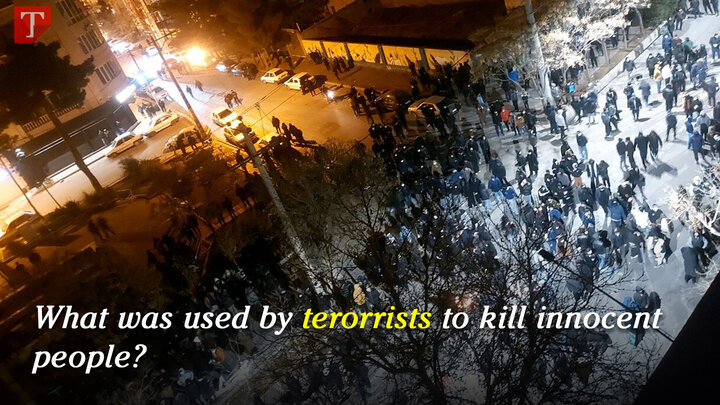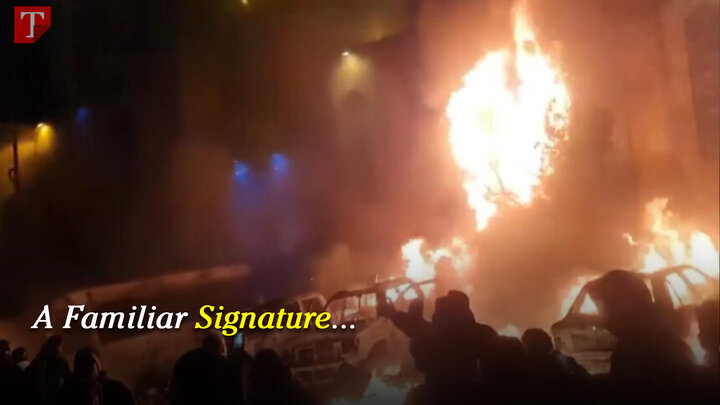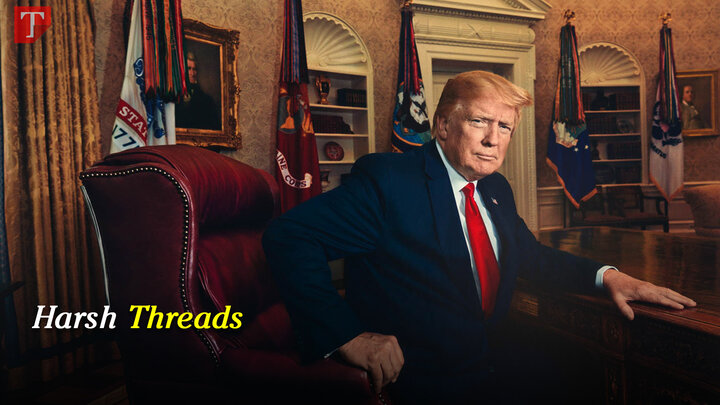-
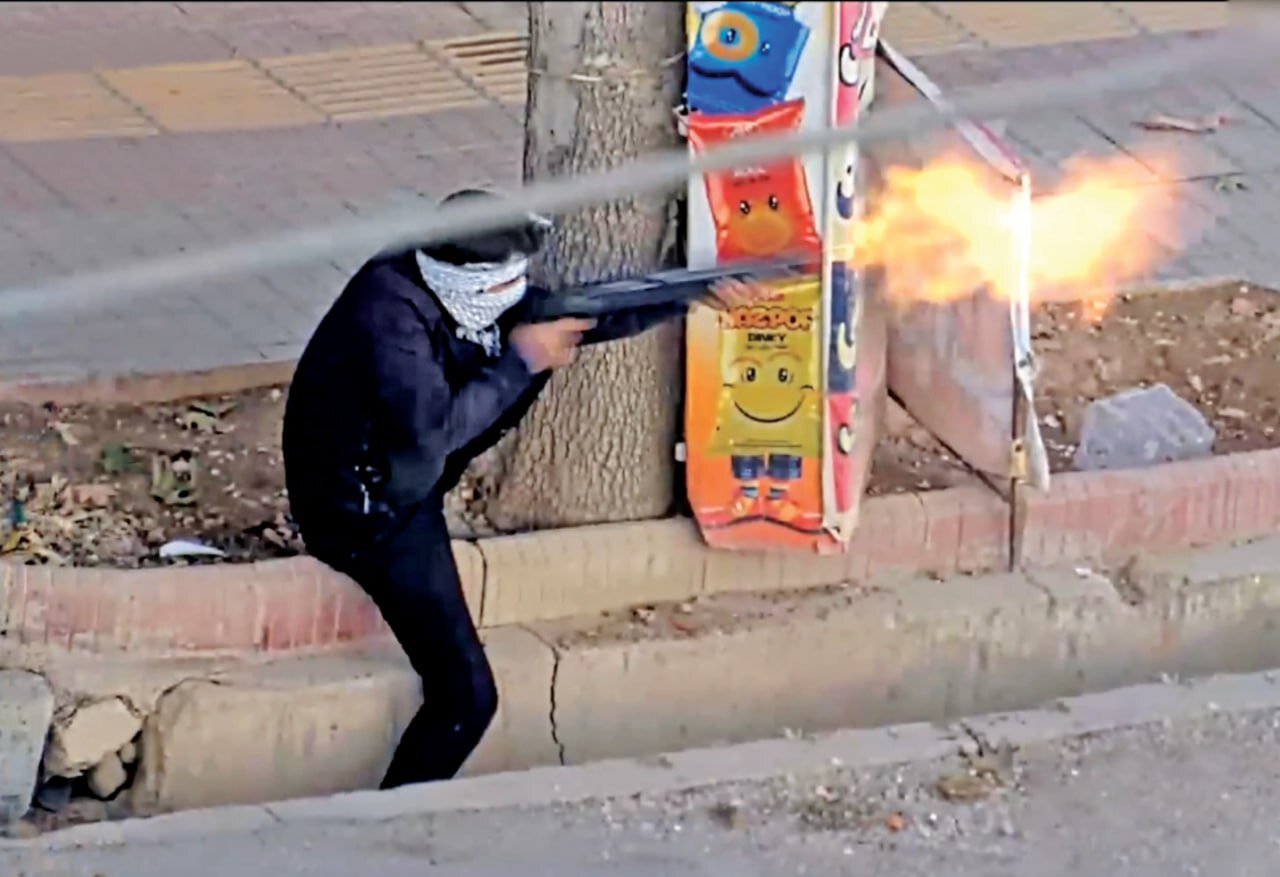 2026-01-28 21:24
2026-01-28 21:24
By Soheila Zarfam
US plan: ‘Make Iran Texas again’
Senator Cruz wants to bring Texas-style weaponization to Iran, openly stating that Washington must arm terrorists
TEHRAN – Ted Cruz, the U.S. senator from Texas, has a reputation for rhetoric that often outpaces his grasp of its consequences. He was a central figure whose remarks fuelled the 2021 attack on the U.S. Capitol, and he remains infamous among his constituents for fleeing to Cancun during a deadly winter storm that crippled the state’s power grid. On the world stage, he is a reliable advocate for American military intervention, from West Asia to South America.
-

By Xavier Villar
From ICE to Iran: Power without symmetry
MADRID - Thomas Friedman’s recent column in The New York Times, in which he equated the United States Immigration and Customs Enforcement (ICE) with Hamas, falls into an analytical simplification that ultimately obscures more than it clarifies.
-

By Fatemeh Kavand
The West’s double standards on police violence
TEHRAN- In the West, police pursue opposition figures all the way to hospital beds and call it “law enforcement.” In Iran, police restraint is labeled a “bloody crackdown.” This deliberate double standard is not a media mistake; it is the organized censorship of truth and a core component of the narrative war against Iran.
-

Collective efforts needed to counter US unchecked power: Sharif University
‘Overt military intimidation and economic strangulation designed to incite internal fragmentation entail global attention’
TEHRAN - Sharif University of Technology has issued a statement signed by 103 faculty members warning against the global threats of the unchecked power of the United States and the need for a collective responsibility to counter them.
-
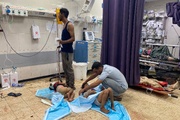
By Wesam Bahrani
Israel's Rafah closure is a death sentence for Gaza's patients
TEHRAN – Israel's continued closure of the Rafah crossing amounts to a death sentence for thousands of Palestinian patients and wounded trapped in the Gaza Strip.
-
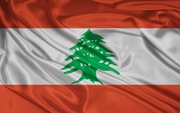
By Sondoss Al Asaad
Lebanon’s paradox: An unfinished state and a necessary resistance
BEIRUT — The central challenge facing Lebanon today is often misrepresented as a confrontation between the “state” and the “Resistance.” In reality, it is a struggle between a state that has yet to be fully realized and a defensive necessity imposed by persistent danger.
Politics
-
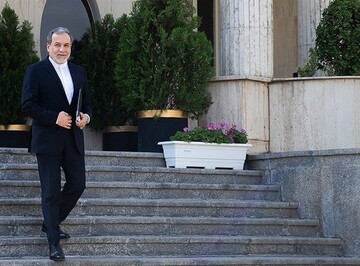
Diplomacy and threats are incompatible, Iran tells US
TEHRAN - Talking to reporters after a cabinet meeting on Wednesday, Iranian Foreign Minister Abbas Araghchi said diplomacy will fail to prove “effective” or “produce results” through military threats.
-
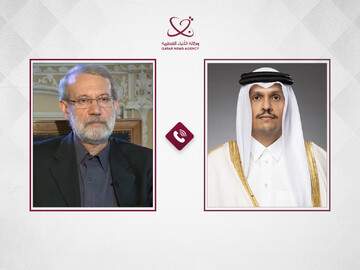
Iran’s Larijani, Qatar PM share views on regional developments
TEHRAN – Qatar’s prime minister on Wednesday telephoned Ali Larijani, secretary of Iran’s Supreme National Security Council, to share views about the latest developments in the region.
-
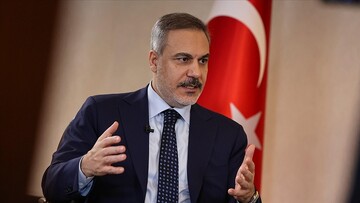
Resolve issues with Iran one by one, Turkish FM tells US
TEHRAN – Turkish Foreign Minister Hakan Fidan on Wednesday called on the United States to resolve its problems with Iran one by one.
Sports
-
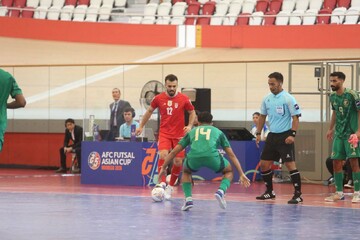
Iran defeat Saudi Arabia in 2026 AFC Futsal Asian Cup
TEHRAN - Iran survived a stern test to defeat Saudi Arabia 2-0 in their AFC Futsal Asian Cup Indonesia 2026 Group D tie on Friday.
-

Female taekwondo athlete Kiani sidelined for six weeks
TEHRAN – Iranian female taekwondo athlete Nahid Kiani underwent knee surgery on Thursday.
-
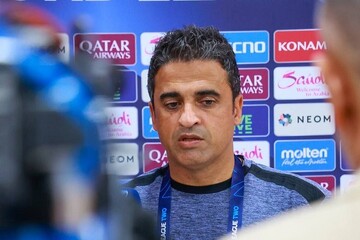
Jalal Omidian named Zob Ahan coach: PGPL
TEHRAN – Zob Ahan Football Club have parted ways with head coach Ghasem Haddadifar following a series of poor results in the 2025/26 Iran Persian Gulf Professional League (PGPL).
Culture
-
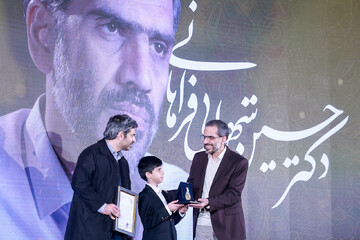
16th Ammar Popular Film Festival concludes in Tehran
TEHRAN – The 16th Ammar Popular Film Festival concluded on the evening of Thursday, January 29, in Tehran.
-
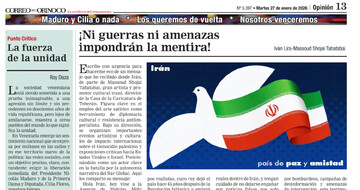
Iranian artist pens truth on Venezuela's front page
TEHRAN- An Iranian artist has articulated the nation's perspective on recent developments through the platform of a major Venezuelan publication.
-
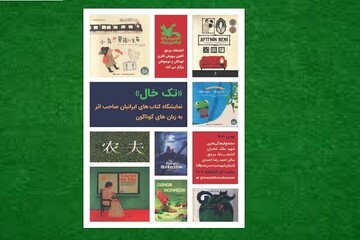
Book exhibition at Kanoon displaying 300 titles by Iranian expats
TEHRAN – A book exhibition titled “Tak Khal” (literally meaning Ace), featuring 300 published works by Iranian expats in various languages, is underway at the Reference Library of the Institute for the Intellectual Development of Children and Young Adults (Kanoon), in Tehran.
Economy
-

Iran’s non-oil trade tops $94b in 10 months
TEHRAN – Iran’s total non-oil trade reached $94.123 billion in the first 10 months of the current Iranian calendar year (March 21, 2025-January 20, 2026), the Islamic Republic of Iran Customs Administration (IRICA) said.
-

Private sector seen doubling exports to Eurasian markets
TEHRAN – Iran’s private sector and traders have the capacity to double exports to some member states of the Eurasian Economic Union, a senior trade official said.
-
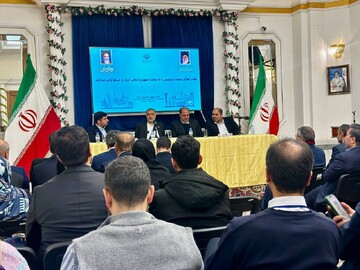
New Iranian vessel to be unveiled in Caspian Sea, co-op with Russia planned in 200 petchem projects
TEHRAN – Iran will unveil a new vessel in the Caspian Sea next week as part of efforts to expand cargo transport capacity, particularly container shipping, Iran’s ambassador to Russia said.
Society
-

Officials discuss promoting knowledge-based products in food, medicine sectors
TEHRAN – The headquarters for developing food and agricultural knowledge-based economy and the headquarters for developing traditional medicine and medicinal herbs have discussed ways to expedite the commercialization of knowledge-based products.
-
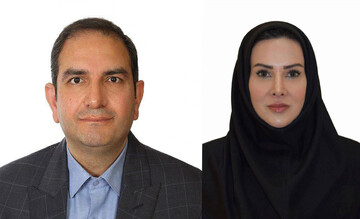
Iranian scholars win COMSTECH award 2025
TEHRAN –Two Iranian scholars have won Life-time Contribution Award of the Organization of Islamic Cooperation’s Committee on Scientific and Technological Cooperation (OIC-COMSTECH) in Biology and Chemistry for their outstanding achievements in science and technology.
-
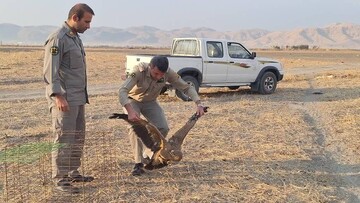
A miracle for a migratory bird: Steppe Eagle from Kazakhstan released after being treated in Iran
TEHRAN – A migratory Steppe eagle from Kazakhstan that had lost its strength due to parasitic and skin diseases was released into the wild after receiving complete treatment at the provincial Department of Environment (DOE) in Izeh, a city in the south-western province of Khuzestan, and regaining the ability to fly.
Tourism
-
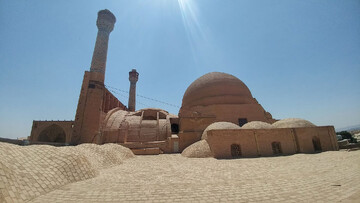
Urgent repairs ordered after water leak damages Isfahan’s UNESCO-listed mosque
TEHRAN – Cultural heritage authorities have launched emergency measures to contain water leakage and ground subsidence at the UNESCO-listed Jameh Mosque of Isfahan after moisture and cracks were detected near its centuries-old Nezam al-Molk dome.
-
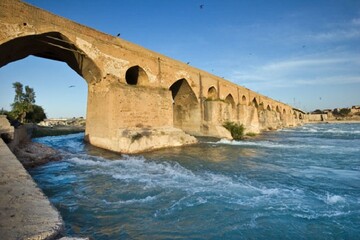
Lawmaker criticizes neglect of Khuzestan’s ‘golden triangle’ of tourism
TEHRAN - A senior Iranian lawmaker on Thursday criticized what he called the neglect of Khuzestan province’s key tourism assets, saying inadequate funding has prevented development of the historical cities of Dezful, Susa and Shushtar.
-
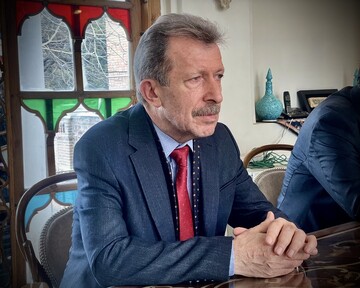
Tabriz can be starting point for tourism cooperation between Iran, Turkey, consultant says
TEHRAN—Orhan Baki, the consultant of the Turkish tourism, commerce and trade company Sulduz considered Tabriz, the capital city of Iran’s East Azarbaijan province, one of the effective destinations for starting joint tourism cooperation between the two countries.
International
-

Israel's Rafah closure is a death sentence for Gaza's patients
TEHRAN – Israel's continued closure of the Rafah crossing amounts to a death sentence for thousands of Palestinian patients and wounded trapped in the Gaza Strip.
-

Lebanon’s paradox: An unfinished state and a necessary resistance
BEIRUT — The central challenge facing Lebanon today is often misrepresented as a confrontation between the “state” and the “Resistance.” In reality, it is a struggle between a state that has yet to be fully realized and a defensive necessity imposed by persistent danger.
-

A truce in words only: Israel keeps bombing Gaza
TEHRAN – Israel’s killing of two Palestinians in Gaza City’s al-Tuffah neighborhood on Tuesday reflects a familiar pattern. Israel is once again violating the October truce it claims to uphold. On paper, the ceasefire exists. On the ground, Israeli gunfire, airstrikes, and shelling continue.
Most Viewed
-
US plan: ‘Make Iran Texas again’
-
Collective efforts needed to counter US unchecked power: Sharif University
-
Diplomacy and threats are incompatible, Iran tells US
-
From ICE to Iran: Power without symmetry
-
Tehran to host Iran–Russia joint economic committee meeting
-
Iran’s Larijani, Qatar PM share views on regional developments
-
Resolve issues with Iran one by one, Turkish FM tells US
-
The West’s double standards on police violence
-
If Iran attacked, it would unleash a conflict that would be impossible to control: senior analyst
-
Western pressure will not halt Iran’s scientific sovereignty, says nuclear chief
-
Iran boosts trade with Oman, Qatar, UAE
-
US will suffer greatly if it attacks Iran: admiral
-
The extensive US military buildup around Iran
-
Israel's Rafah closure is a death sentence for Gaza's patients
-
Lebanon’s paradox: An unfinished state and a necessary resistance










